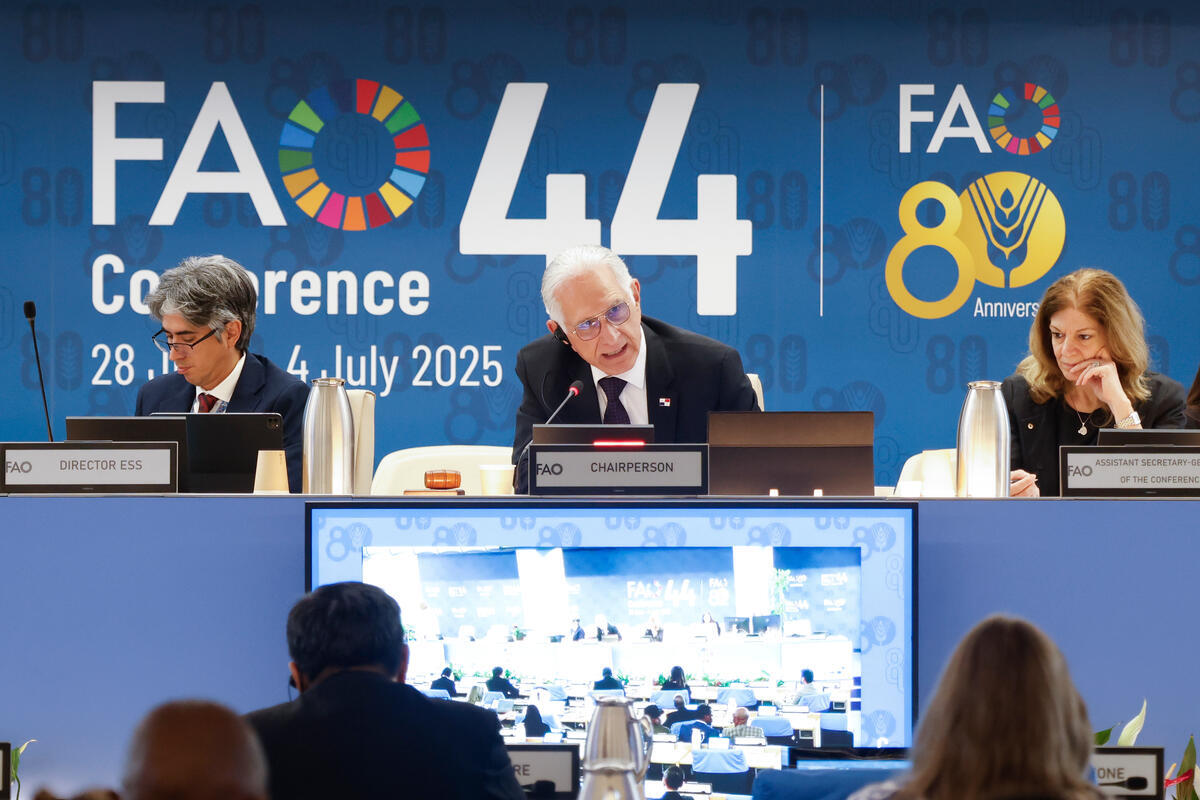
By Jeff Kapembwa
And Zambia has regretted the gravity of devastation to the agriculture and the environment caused by the crisis, chiefly the 2023/24 farming season, which dwarfed global annual food production by half, affected over 9 million people in 116 districts, 3 million children afflicted with malnutrition and affected output from energy and other growth sectors.
The global conference themed: “The State of Food and Agriculture: Fostering Innovation for Food Security,” held from 28 June to 4 July, among other resolutions, called for action against climate change including member countries adopting climate-resilient farming practices and addressing water scarcity in agriculture.
The 44th Session of the FAO Conference, seen as a renewed commitment to addressing global food security challenges reaffirmed member countries’ right to food, emphasizing international cooperation.
It called for investments in sustainable agriculture and climate-resilient practices.
The conference, which attracted most of the 195 members, including 194 countries and the European Union, called for the urgent need to redress the impact of climate change, conflict, and economic instability on food systems.
A communique availed show the FAO members reaffirming their right to safe, sufficient, and nutritious food.
This includes recognizing the right to be free from hunger, as stated in the International Covenant on Economic, Social and Cultural Rights.
There be a promotion of investment in Sustainable Agriculture through human resource development, research, and infrastructure to enhance food security.
This includes promoting sustainable agricultural practices, such as climate-resilient farming, and investing in digital agriculture.
It was resolved that the smallholder farmers be supported to the hilt, including youths, women in agriculture while recognizing the crucial role in food output.
There is a need for unwavering commitment by all members to seek to combat malnutrition in all its forms including under-nutrition, micronutrient deficiencies, overweight, and obesity.
It recognized the negative impact of malnutrition on health, well-being, and economic development.
There is a need for a lasting solution to conflicts and instability, left unabated globally, being key drivers of hunger among the majority of people being exposed to acute hunger and living in fragile or conflict-affected countries.
There be policies to promote equitable and overall access to productive and financial resources.
And Zambia, one of the countries that shared platforms during the just ended conference, recalled the impact of climate change on the environment, infrastructure as well as food security in 2023/24 season.
The disaster prompted Zambia to seek US$23 billion in food aid from well-wishers.
Zambia, represented by its ambassador in Rome, and also Permanent Representative to the United Nations Agencies in Rome, Patricia Chisanga Kondolo reminisced challenges that befell the Southern African state, including El Nin La Nina-induced drought driven by climate change, and still recurs.
Zambia was currently facing food security. Climate change, she noted, intensified by the effects of El Niño, contributed to severe droughts, as well as La Nina, which contributed to the flood situation, due to above average rainfall, both situations negatively affected maize production.
“Combined with rising input costs and global market volatility, these factors made access to nutritious food increasingly difficult, especially for vulnerable communities” she told the conference, she said as she eulogized FAO’s 80-years of existence.
FAO, she acknowledged, remains a key partner not only to Zambia, but the rest of its members in seeking to devise strategies seeking to redress national and regional efforts to end hunger, build resilience, and promote sustainable development.
There is an urgent need to invest in digital agriculture, renewable energy, and climate-resilient farming practices, with a strong focus on supporting smallholder farmers, youth, and women.
There will be a promotion of regional cooperation and capacity-building initiatives to enable Member States to adopt and adapt technological innovations to their unique local contexts.
Zambia reaffirmed its collaboration and sustained support for FAO. It expressed the country’s commitment to working closely with the organization and other Member States to accelerate progress towards resilient, inclusive, and sustainable agri-food systems.
The conference closed with the adoption of the report.
The conference was meant to allow member states to determine the policy direction of the organization, approve its budget, and address key governance matters.
This included the appointment of the Independent Chairperson of the FAO Council and the election of new Council Members.
FAO, the UN food agency thrives on four pillars: availability, access, utilization and stability.
It seeks to enhance sustainable food and agriculture (SFA) contributes to all four pillars of food security – availability, access, utilization and stability – and the dimensions of sustainability (environmental, social and economic).
